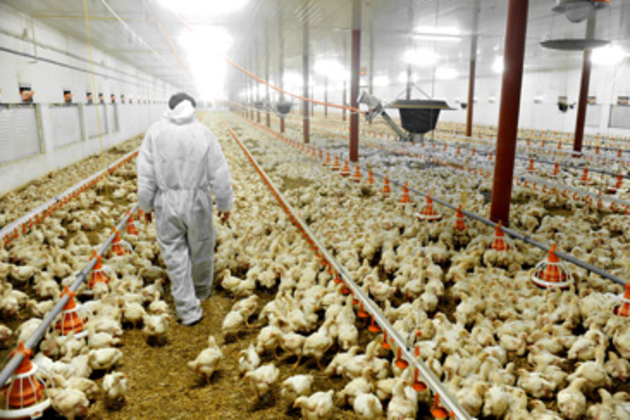The power of language: Rethinking food labels to expand our plant-based choices
The Conversation
20 Feb 2025, 19:37 GMT+10

"Vegan," "vegetarian," "meatless," "plant-based," "plant-rich," "plant-forward," "animal-free": these are all terms used to describe foods or diets that are mostly or completely made of non-animal sources.
This list can go on and, although these terms are to some extent related, they're not the same. For example, the term "vegan," coined in 1944 by The Vegan Society, is used to define products that contain no animal-based ingredients.
According to Canada's Food Guide, "vegetarian diets are those that exclude some or all animal products," whereas a plant-based diet is defined as one that "puts more emphasis on eating plant foods such as vegetables and fruits, whole-grains and legumes (beans) and less emphasis on eating animal foods."
In another definition, The British Dietetic Association describes a plant-based diet as "based on foods that come from plants with few or no ingredients that come from animals."
Why does this matter? Because regardless of the label, evidence supports that diets that contain fewer animal-based products such as meat are proven to be better for your health and the natural environment.
Even with the growing public interest around plant-rich diets, the number of people adopting these diets remains low, particularly in Canada.
For many, plant-based foods are often perceived as an unfamiliar option that lacks in taste or does not align with their cultural food norms. Many consumers are also confused about the true meaning of these terms, which makes choosing food more complicated.
From a legislative perspective, many of these terms do not have unique legal definitions in in most markets, including Canada.
What is the result of all this confusion and perceived barriers? Even though there are a variety of plant-based food options available in stores, and various restaurants offering vegan/vegetarian dishes or full menus, plant-based foods are not many people's choice.
A recent report by Globe Scan, an international insights and advisory firm, showed that "although 68 per cent of people worldwide express interest in consuming more plant-based foods, only 20 per cent do so regularly, down from 23 per cent in 2023."
The report noted that with rising food costs, many consumers have returned to "cheaper, familiar foods" rather than plant-based alternatives. Therefore, there is a growing need for more population-level support and interventions to help consumers navigate their food choices.
The responsibility and pressure to make the "right" choice should not be solely on the consumer. They cannot be expected to make radical and sudden changes to their eating habits such as entirely eliminating meat. However, small modifications, such as gradually reducing animal-based food (instaed of complete elimiation) and moving towards plant-rich diets, is a promising solution.
So, what does this mean for food producers, restaurant owners and decision-makers who want to promote their products? They should use appealing language and framing to describe food, whether it's the description on a menu or labels on a package. It's important to avoid using labels that create more confusion or reinforce the feeling of unfamiliarity.
Here are four low-cost tips and recommendations that could help positively influence consumer choices:
The halo effect is a cognitive bias where one positive characteristic or impression of a product influences the overall perception. In terms of food labelling, this means people might be more likely to purchase food if the name is appealing to them.
Research shows labelling food vegan can decrease consumers' taste expectations and, in turn, their purchasing intentions. On the contrary, labels and names that use appealing language that promotes delicious, high-quality food, evokes enjoyment and increases positive reactions is a strategy that has proven effective in altering consumer choices.
A study by The Good Food Institute found that consumers responded more favourably to plant-based burgers described with indulgent terms compared to those labelled with health-focused or restrictive language.
Why? Because using descriptive language that highlights the taste, texture and overall eating experience attracts a broader audience. Terms such as savoury, juicy or spicy can enhance the appeal of plant-based dishes. Think about "Juicy American Burger" versus a plant-based alternative that might be described simply as "Vegan Burger."
Steer clear of labels that may imply restriction, compromise or carry unintended negative connotations. Instead focus on terminology that implies inclusivity and offers complementary choices. The terms vegan and vegetarian are shown to be associated with negative stereotypes and feelings among some consumers, particularly the term vegan.
Labelling food as vegan/vegetarian does make food easily identifiable for consumers who are seeking plant-based options. However, using variants of "plant-based" instead of vegan/vegetarian has been proven to increase mainstream consumer purchasing intent.
A further recommendation is to avoid labels such as plant-based milk "substitute" (for example for oat milk) or "veggie burger," which can imply a replacement for existing choice and create an unnecessary competition between the choices.
Plant-rich diets are not a new invention. Many food cultures around the globe have been plant-based for many years. Therefore, there is no need to reinvent the wheel to come up with labels and names. Take falafel, for example: it is essentially a veggie burger with a different name, yet it is popular among consumers.
Research also demonstrates highlighting food origins (also known as the country-of-origin effect) and including geographic references makes foods more appealing; for example, Panera Bread had a boost is soup sales by changing the name of one dish from "Low Fat Vegetarian Black Bean Soup" to "Cuban Black Bean Soup."
Adopting a plant-rich diet is considered healthy and can be budget-friendly. Using language that appeals to consumers, instead of unfamiliar terms that may have negative associations for many people, can help encourage these dietary choices among a broader group of consumers.
 Share
Share
 Tweet
Tweet
 Share
Share
 Flip
Flip
 Email
Email
Watch latest videos
Subscribe and Follow
Get a daily dose of Africa Leader news through our daily email, its complimentary and keeps you fully up to date with world and business news as well.
News RELEASES
Publish news of your business, community or sports group, personnel appointments, major event and more by submitting a news release to Africa Leader.
More InformationInternational
SectionRecord cold grips millions as US battles deep freeze
BISMARCK, North Dakota: More than 95 million people faced extreme cold on February 18 as a polar vortex sent temperatures to record...
Taiwan defends Strait’s status after China criticizes Canada
TAIPEI/BEIJING: Taiwan's defense ministry said this week that the Taiwan Strait does not belong to China, and any attempts to create...
No unified European army despite Russian threat, says Polish FM
WARSAW, Poland: European nations will not form a single, unified army despite growing security concerns over Russia, Polish Foreign...
Speaker Mike Johnson: Western survival hinges on national priorities
LONDON, U.K.: Republican U.S. House Speaker Mike Johnson said this week that Western countries must focus on their national interests...
First human H5N1 case confirmed in Wyoming as bird flu spreads
CHEYENNE, Wyoming: The state reported its first human case of Type A H5N1 influenza, which is spreading through animals and some people...
Europe faces hard choices amid rising threats, warns French FM
MUNICH, Germany: Speaking at the Munich Security Conference, French Foreign Minister Jean-Noel Barrot warned that Europe must brace...
Business
SectionThames water secures legal lifeline, avoids collapse
LONDON, U.K.: A judge has approved an emergency financial plan to prevent Britain's largest water company, Thames Water, from collapsing,...
U.S. stocks tumble as Trump policies startle investors
NEW YORK, New York - Concerns over U.S. President Donald Trump's startling diversions from his country's long-held policies, and the...
Southwest Airlines cuts 1,750 corporate jobs in first-ever layoffs
DALLAS, Texas: Southwest Airlines is laying off 1,750 employees, or 15 percent of its corporate staff, in the company's first significant...
Australian central bank cuts interest rates for first time since 2020
MELBOURNE, Australia: Australia's central bank has cut its benchmark interest rate for the first time in more than three years, signaling...
Brazil joins OPEC+ ahead of key UN climate summit
BRASILIA, Brazil: Brazil has officially approved joining OPEC+, aligning itself with the world's major oil-exporting nations just months...
U.S. stock markets in sharp retreat Thursday
NEW YORK, New York - U.S. stocks fell sharply Thursday as profit-takers moved in to take the cream off the substantial gains that have...













